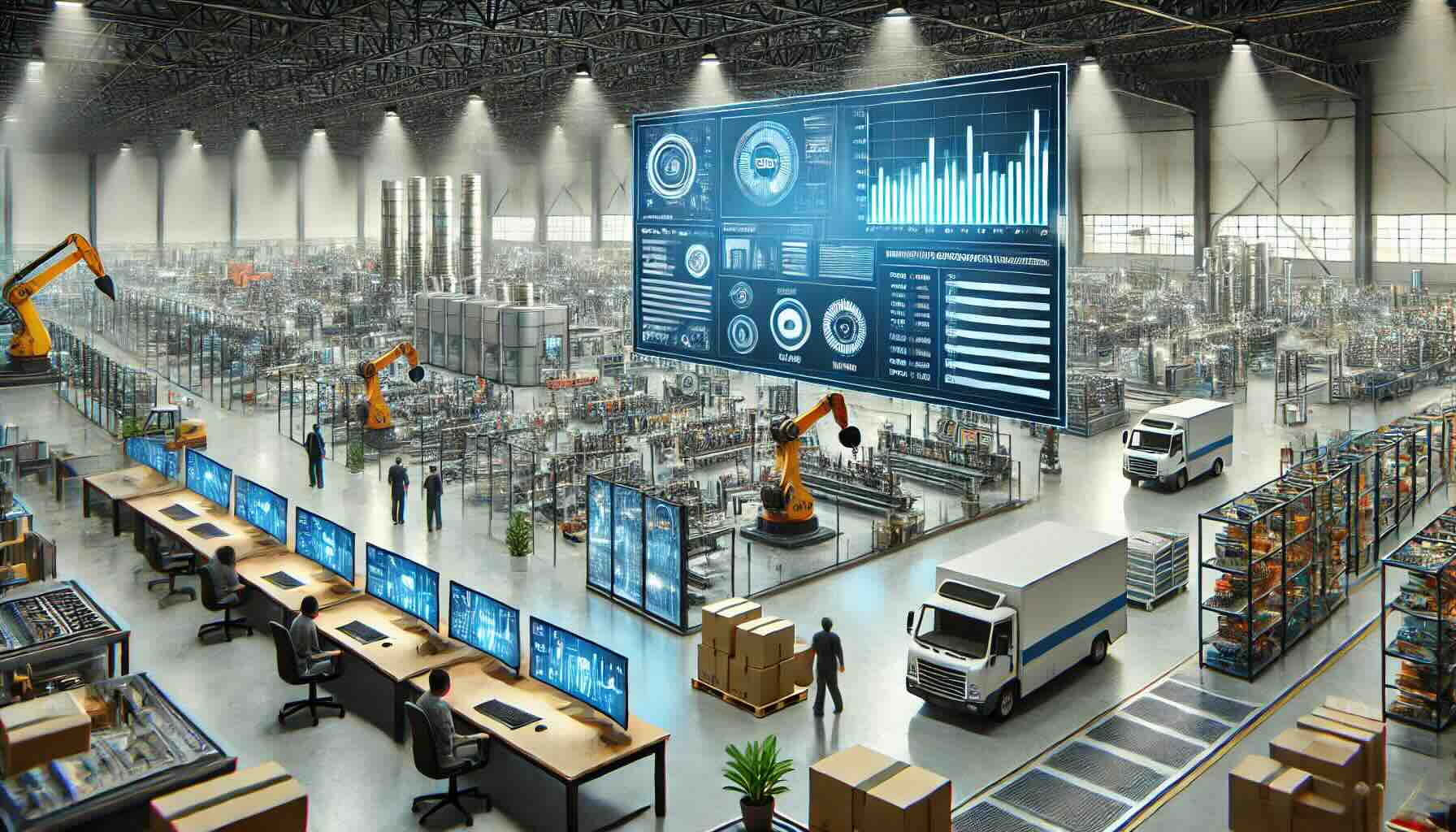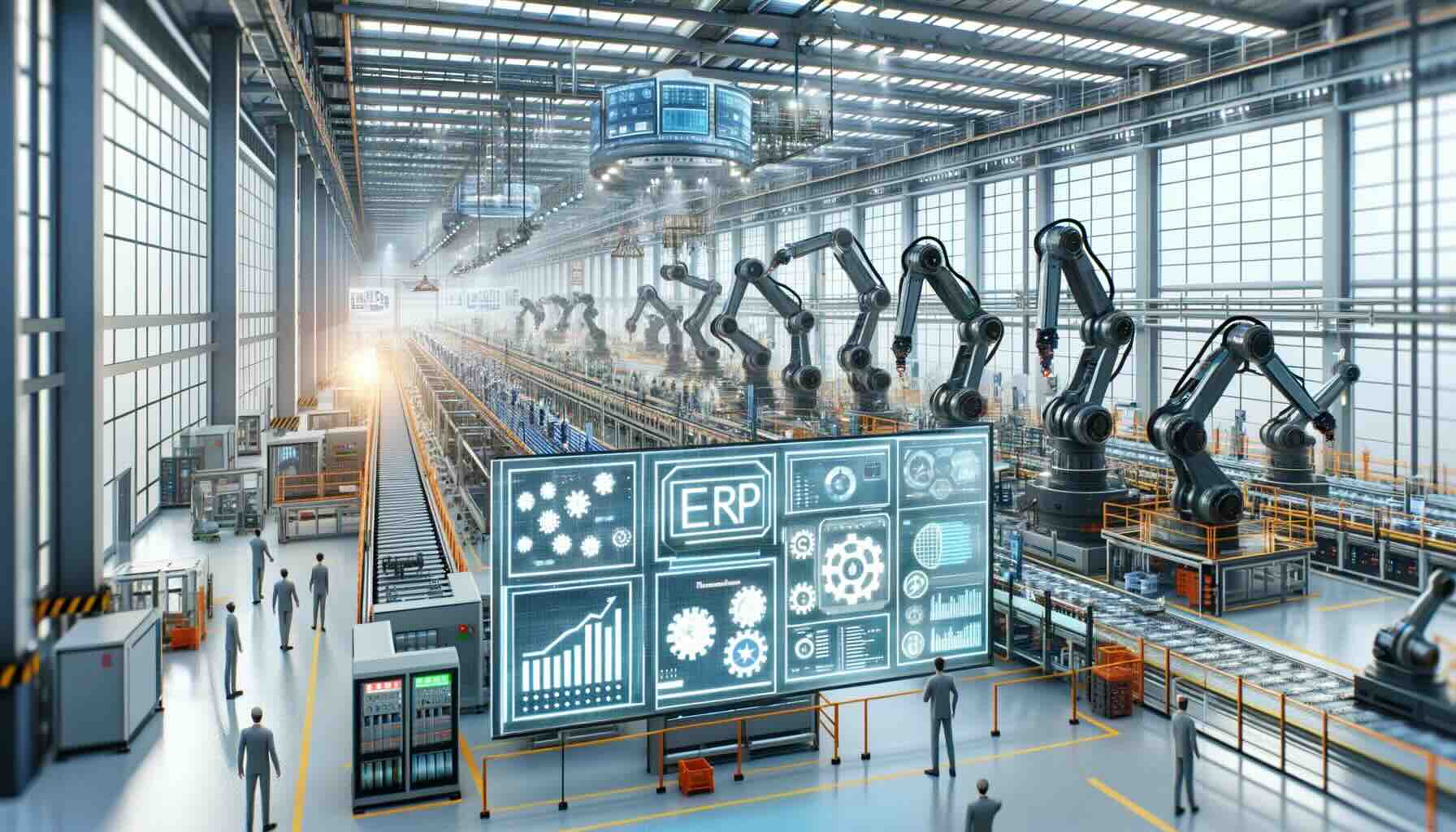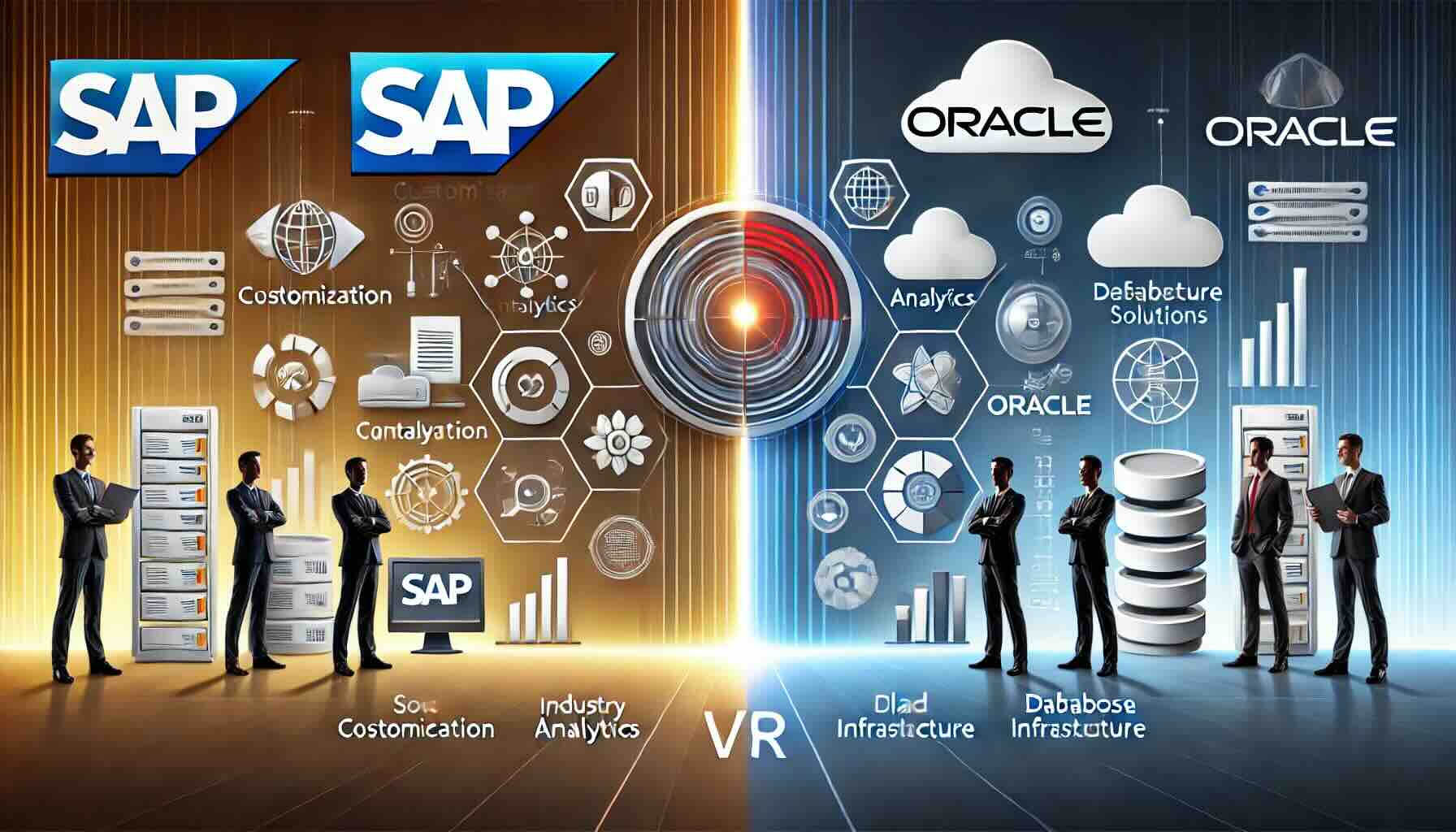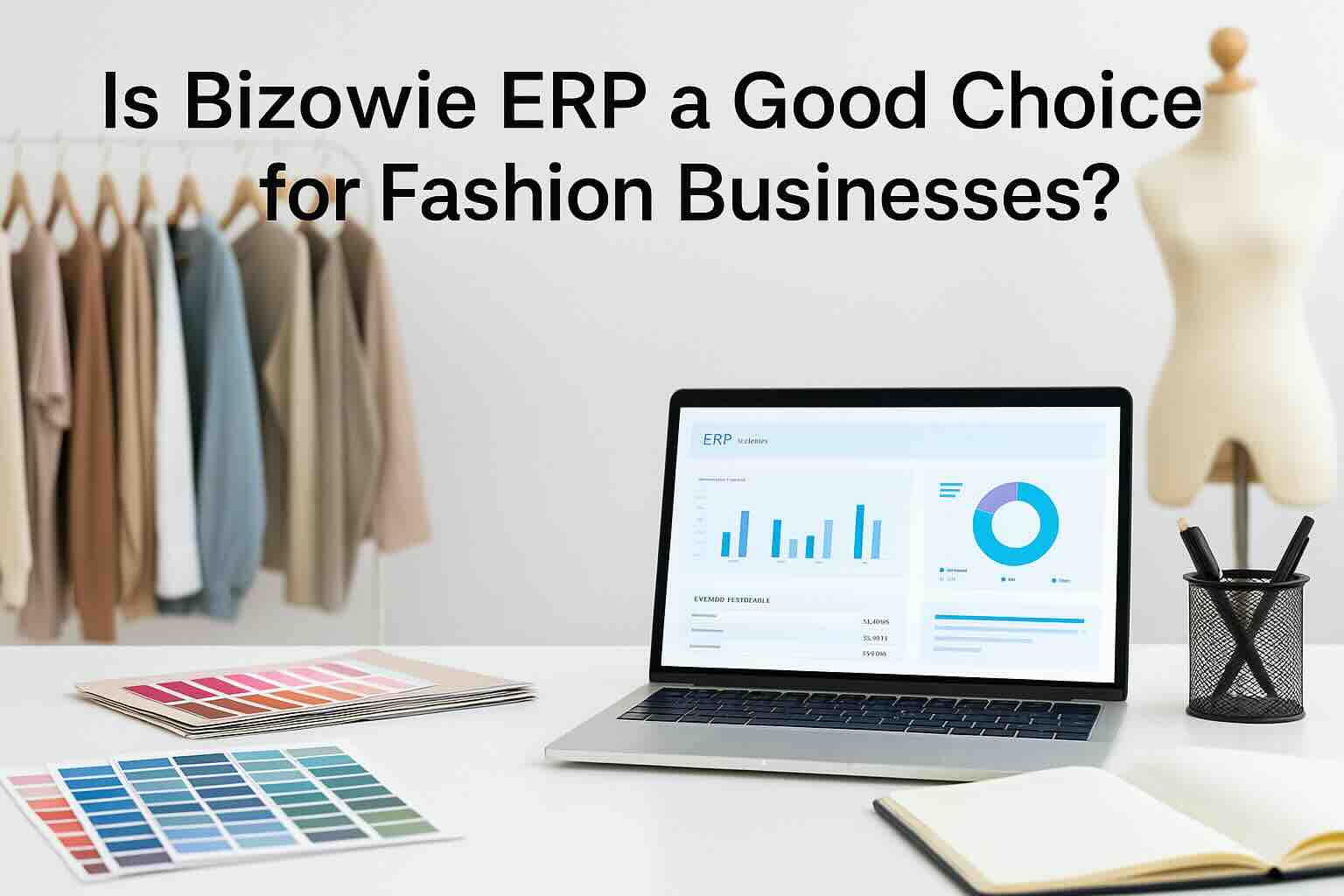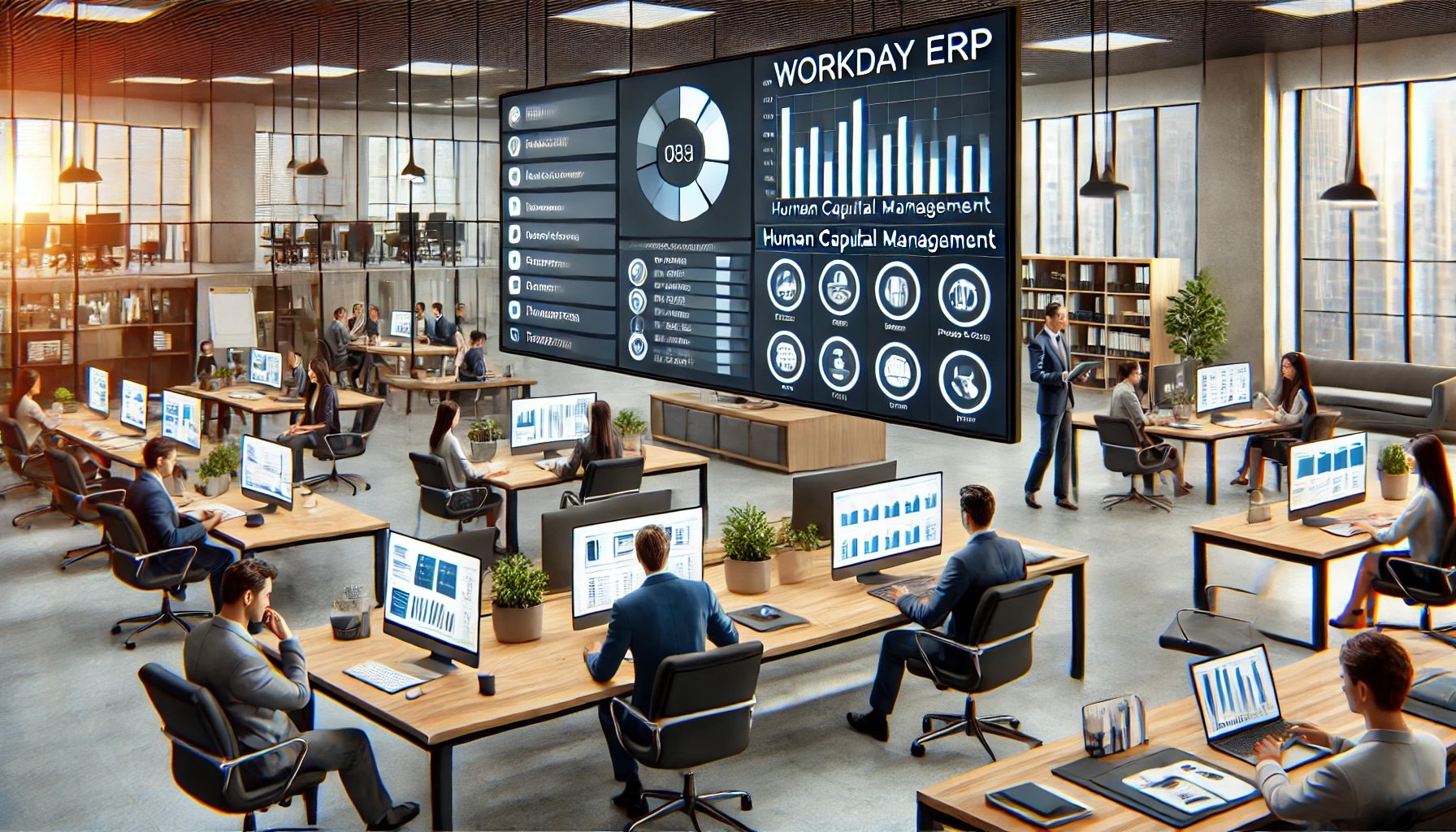Compare the Top 10 ERP Solutions in the World
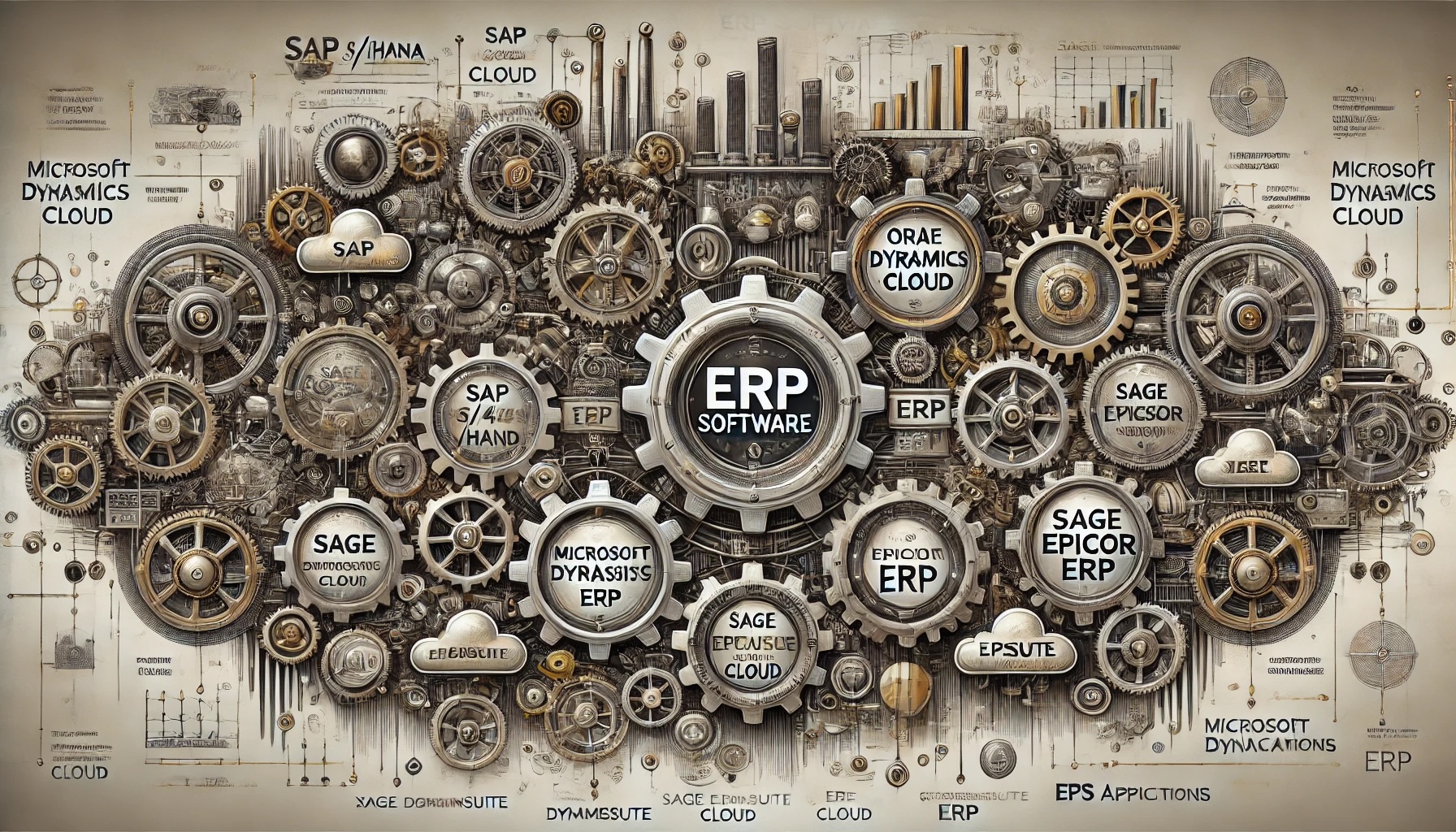
In today’s fast-paced business environment, having a robust Enterprise Resource Planning (ERP) system is crucial for companies aiming to streamline their operations and maintain a competitive edge. This blog post compares the top 10 ERP software in the world, providing in-depth overviews, pros, and cons for each solution. By the end of this comparison, you’ll have a clearer understanding of which ERP solution might be the best fit for your business needs.
1. SAP S/4HANA
Overview
SAP S/4HANA is widely regarded as a leader in the ERP market, offering a comprehensive suite of tools that support digital transformation. It integrates real-time analytics and reporting, utilizing AI and machine learning to provide deep insights and automation. SAP S/4HANA is designed to meet the needs of large enterprises and is known for its scalability and robust performance across various industries.
Key Features
- Real-time analytics and reporting
- AI and machine learning capabilities
- Comprehensive suite covering finance, supply chain, and customer management
Pros
- Robust and scalable
- Extensive industry-specific solutions
- Strong global support network
Cons
- High implementation and maintenance costs
- Steep learning curve
- May be too complex for smaller businesses
2. Oracle ERP Cloud
Overview
Oracle ERP Cloud offers a flexible and scalable cloud-based solution designed to streamline business processes and improve operational efficiency. It provides advanced financial management, procurement, and project management capabilities. Oracle ERP Cloud is known for its robust integration capabilities and regular updates, ensuring it remains at the forefront of technological advancements.
Key Features
- Advanced financial management
- Procurement and project management
- AI-driven analytics
Pros
- Strong integration capabilities
- Regular updates and improvements
- Excellent support for global businesses
Cons
- Complex pricing structure
- Implementation can be time-consuming
- Customization can be challenging
3. Microsoft Dynamics 365
Overview
Microsoft Dynamics 365 combines CRM and ERP capabilities to offer a comprehensive solution for managing business processes end-to-end. It integrates seamlessly with other Microsoft products, making it a popular choice for businesses already using Office 365. Dynamics 365 provides real-time data insights and analytics, with flexible deployment options including cloud, on-premise, and hybrid solutions.
Key Features
- Integration with Microsoft Office and other products
- Real-time data insights and analytics
- Flexible deployment options (cloud, on-premise, hybrid)
Pros
- User-friendly interface
- Strong support and community
- Seamless integration with other Microsoft services
Cons
- Customization can be costly
- Limited industry-specific solutions
- Some features require additional licensing
4. Infor CloudSuite
Overview
Infor CloudSuite is designed for specific industries, offering deep functionalities tailored to each sector’s unique needs. It provides a modern user experience with built-in analytics and strong customization options. Infor CloudSuite’s scalable cloud infrastructure makes it an ideal choice for businesses looking for industry-specific solutions.
Key Features
- Industry-specific capabilities
- Modern user experience
- Built-in analytics
Pros
- Strong industry focus
- High level of customization
- Scalable cloud infrastructure
Cons
- High cost of implementation
- Steep learning curve for new users
- Limited third-party integrations
5. Epicor ERP
Overview
Epicor ERP is a versatile solution aimed primarily at manufacturing and distribution industries. It offers comprehensive tools to enhance productivity, including manufacturing management, supply chain management, and financial management. Epicor ERP is known for its user-friendly interface and strong customer support.
Key Features
- Comprehensive manufacturing management
- Supply chain management
- Financial management
Pros
- Industry-specific solutions
- User-friendly interface
- Strong customer support
Cons
- Limited scalability for very large enterprises
- Can be expensive for small businesses
- Customization options may be limited
6. Sage X3
Overview
Sage X3 is a powerful ERP solution that streamlines complex processes, helping businesses achieve greater efficiency and insight. It offers advanced financial management, inventory and supply chain management, and manufacturing and production management. Sage X3 is particularly cost-effective, making it a popular choice for mid-sized businesses.
Key Features
- Advanced financial management
- Inventory and supply chain management
- Manufacturing and production management
Pros
- Cost-effective
- Flexible and scalable
- Strong focus on mid-sized businesses
Cons
- Limited features for large enterprises
- Can be complex to implement
- Support and documentation can be inconsistent
7. NetSuite ERP
Overview
NetSuite ERP is a cloud-based solution designed to manage all business processes in a unified system. It offers extensive customization options, making it suitable for a wide range of industries. NetSuite ERP integrates financial management, CRM, eCommerce, and inventory management, providing a comprehensive solution for growing businesses.
Key Features
- Financial management
- CRM and eCommerce integration
- Inventory and order management
Pros
- Comprehensive cloud solution
- Highly customizable
- Strong support for growing businesses
Cons
- High subscription costs
- Implementation can be complex
- May require third-party integrations for specific needs
8. Acumatica
Overview
Acumatica offers a cloud-based ERP solution known for its flexibility and ease of use, particularly for small and mid-sized businesses. It provides financial management, project accounting, and customer relationship management (CRM). Acumatica’s scalable pricing model and strong mobile access make it an attractive option for businesses seeking a user-friendly ERP system.
Key Features
- Financial management
- Project accounting
- Customer relationship management (CRM)
Pros
- User-friendly interface
- Scalable pricing model
- Strong mobile access
Cons
- Limited functionality for large enterprises
- Fewer industry-specific solutions
- Customer support can be variable
9. IFS Applications
Overview
IFS Applications is a comprehensive ERP solution focusing on asset-intensive and project-oriented industries. It offers robust capabilities in project management, asset management, and supply chain management. IFS Applications is designed to provide advanced functionality for businesses that rely heavily on projects and asset management.
Key Features
- Project management
- Asset management
- Supply chain management
Pros
- Strong industry focus
- Flexible and scalable
- Advanced functionality for project-driven businesses
Cons
- High implementation costs
- Steep learning curve
- Limited third-party integrations
10. SYSPRO
Overview
SYSPRO is an ERP solution tailored for manufacturers and distributors, providing a comprehensive suite of tools to enhance operational efficiency. It offers manufacturing operations management, supply chain management, and financial management. SYSPRO is known for its industry-specific capabilities and strong customer support.
Key Features
- Manufacturing operations management
- Supply chain management
- Financial management
Pros
- Industry-specific capabilities
- User-friendly
- Strong customer support
Cons
- Limited scalability for very large enterprises
- Customization can be challenging
- Implementation can be time-consuming
Conclusion
Choosing the right ERP solution can significantly impact your business’s efficiency and growth. The top 10 ERP software in the world listed above each offer unique strengths and features tailored to different industries and business needs. Assessing your company’s specific requirements and comparing them with the capabilities of these leading ERP solutions will help you make an informed decision.
By optimizing your business processes with the right ERP system, you can enhance productivity, gain valuable insights, and drive sustainable growth. For more detailed information and personalized recommendations, consider consulting with an ERP specialist.
To compare these ERP solutions and many more, you can use our new AI-powered Compare ERP tool. It’s free to use and you get a guaranteed discount on your first year’s licence fees with a referral from Compare ERP.
